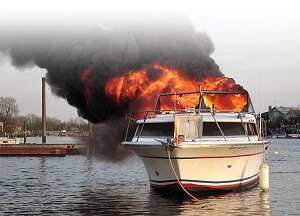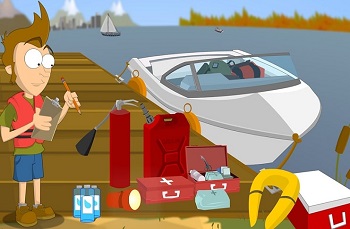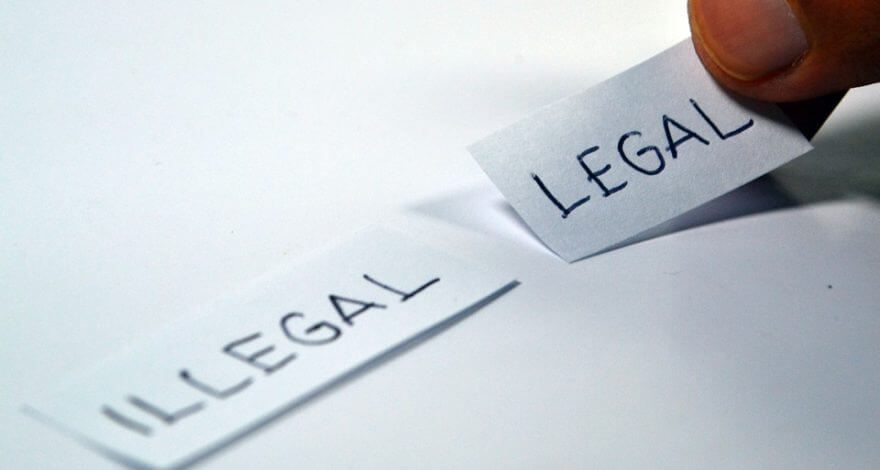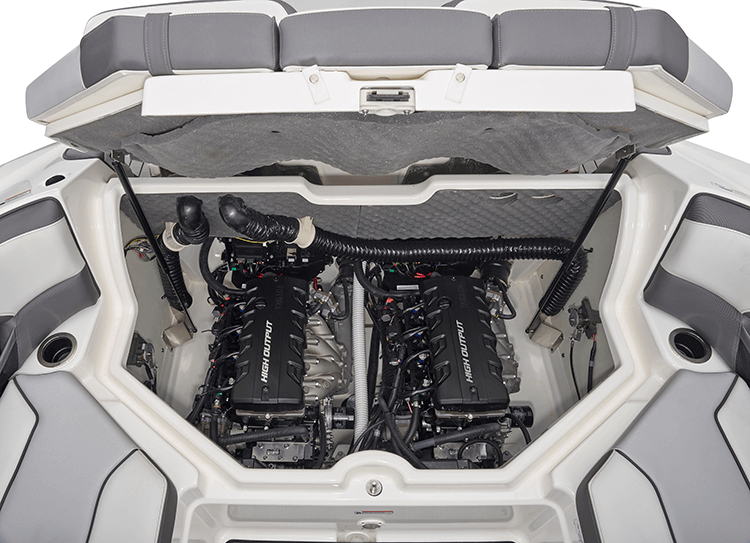Where to Store a Fire Extinguisher on a Boat: The Best Place for Safekeeping
Where to Store a Fire Extinguisher on a Boat: The Best Place for Safekeeping
February 24, 2023
Where is the best place to store a fire extinguisher on a boat? That is a question that many boaters ask themselves, especially when they are first learning about boat safety.
The answer may surprise you! This blog post will discuss the best places to store a fire extinguisher on your boat, as well as some other important safety tips.
Why Have a Boat Fire Extinguisher?

A boat fire extinguisher is a device used to put out fires. They are portable and can be carried with you on your boat. Fire extinguishers are an essential safety device to have on board your vessel.
For many reasons, it would be best if you had a fire extinguisher on your boat.
Prevent fires from spreading

One reason is that they can help to prevent fires from spreading. If a fire does start, having an extinguisher can help to contain it and stop it from getting out of control.
Safety Reason

Another reason to have a fire extinguisher on your boat is for safety. If you are in the water, or if your boat is sinking, an extinguisher can help you put out a fire and escape.
Required by law in some states

Finally, fire extinguishers are required by law in some states. If you are boating in an area where they are needed, it is essential to have one on board.
Having a fire extinguisher stored on a boat is a good idea for many reasons. They can help prevent fires from spreading, be used for safety, and are required by law in some states. Make sure you have one on board your vessel today.
How to Choose the Right Type of Marine Fire Extinguisher
Knowing which fire extinguisher to use is important because using the wrong kind of one can make the fire worse.
So, before you use a fire extinguisher on a boat, identify the type of fire and select the fire extinguisher that is designed for that type of fire.
Fire Extinguisher Classes
Regarding fire extinguishers, different classes are designed for specific purposes.
Fire extinguishers are no different. Three main types of fire extinguishers are used on most boats: Class A, Class B, and Class C.
- Class A fire extinguishers are designed for use on ordinary combustibles such as wood, paper, and cloth.
- Class B fire extinguishers are designed for use on flammable liquids, such as gasoline, oil, and grease.
- Class C fire extinguishers are designed for use on electrical equipment.
Different Types of Marine Fire Extinguishers
There are two main types of fire extinguishers used for boats: dry chemicals and carbon dioxide. Each type has its advantages and disadvantages, so it’s essential to choose the right one for your needs.
Dry chemical extinguishers
These are the most common type of fire extinguishers for boats. They work by creating a barrier between the oxygen in the fire and the fuel. This barrier cuts off the fire’s oxygen supply, smothering it. Dry chemical extinguishers are effective on all types of fires, including electrical fires.
However, dry chemicals can be damaging to equipment. They can also be challenging to clean up after use.
Carbon dioxide extinguishers
These work by displacing the oxygen in the fire. This extinguishes the fire by depriving it of oxygen. Carbon dioxide extinguishers are most effective for fires involving flammable liquids, such as gasoline or oil.
However, these can be expensive. They are also dangerous to use in enclosed spaces because they can cause asphyxiation.
It’s essential to choose the right type and class of fire extinguishers for your needs. If you’re not sure which one to choose, consult a professional. They will be able to help you select the best extinguisher for your situation.
Other Factors to Consider
There are several factors to consider when choosing the right type of marine fire extinguisher.
The most crucial factor is the size of the fire. If the fire is large, you will need a bigger extinguisher.
Another critical factor is the type of fuel that is burning. Some extinguishers are designed for specific styles, such as oil or electrical fires.
Finally, you need to consider the location of the fire. Some extinguishers can be mounted on walls or in other areas that will be easily accessible in an emergency.
Marine Fire Extinguisher Requirements for a Boat
A few specific requirements for marine fire extinguishers are based on US coast guard federal regulations. These requirements ensure that each boat has a fire extinguisher system.
- Fire extinguishers must be able to withstand the harsh environment found on board a boat. This means that they must be able to withstand high temperatures, salt water, and other corrosive materials.
- Fire extinguishers must be specifically designed for use on boats. This means that they must be able to discharge fully and evenly in the event of a fire.
- Fire extinguishers must be properly labeled. This label must include the manufacturer’s name, the date of manufacture, and the instructions for use.
- Fire extinguishers must be adequately maintained. This means they must be regularly inspected and serviced by the manufacturer’s instructions.
By following these requirements, you can be sure that your fire extinguisher and other safety equipment will be effective in the event of a fire on board your boat.
Best Places to Keep a Boat Fire Extinguisher
Kitchen

The kitchen is the best place to store a fire extinguisher on a boat because it is usually the room with the most combustible materials. It also has easy access to an outside exit in case of a fire. If you have a galley-style kitchen, you can use it as a barrier between the fire and the rest of the boat.
Another reason a kitchen is a good place for fire extinguishers is because it is usually near the engine room, which is another potential source of fires onboard. Lastly, the kitchen is typically centrally located so it can be easily accessed in an emergency.
Engine compartments

The engine compartment is the best place to keep a fire extinguisher in your boat because it is typically the area of the boat which is a fire risk. By keeping the fire extinguisher in this area, you will be able to quickly and easily reach it in the event of a fire. Additionally, the engine compartments are typically made of fire-resistant materials, which will help prevent the fire from spreading.
Another reason that the engine compartment is the best place to store a fire extinguisher is that this area of the boat is typically cooler than others. This can help prevent the fire extinguisher from being damaged by heat or flames. It can also help keep the fire extinguisher from being triggered accidentally by heat or flames.
Fuel storage compartments
The fuel storage compartment is the best place to keep a fire extinguisher in your boat because it is close to the engine, which is the most likely source of a fire on a ship. It is usually made of fire-resistant materials, making it more resistant to fires than other parts of the boat.
Also, it is typically well-ventilated, making it less likely for a fire to start in the first place.
Bilge
There are a few reasons for this. The first is that the bilge is the lowest part of the boat. If a fire is on board, the extinguisher will be closer to it and can put it out more effectively. Secondly, the bilge is usually made of metal, which provides a good heat conductor. This means the fire extinguisher will cool down quicker, making it more effective.
Finally, the bilge is usually located near the engine room, another area where fires are more likely to start.
Cabin

The cabin is usually the best place to keep a fire extinguisher on your boat because it is close to the helm. If there is a fire onboard, you can quickly grab the extinguisher and put out the fire before it has a chance to spread. Also, keeping your fire extinguisher in the cabin allows you quick and easy access to it in an emergency.
Another reason why the cabin is the best place to keep a fire extinguisher on your boat is because it is typically the coolest area on the vessel. This is important because fire needs oxygen to burn, so keeping extinguishers in a cool place will help prevent them from being damaged or ineffective. Additionally, if you need to use the fire extinguisher, the cooler temperature in the cabin will help keep you from being overheated.
Hull
Hull is the best place to keep a fire extinguisher in your boat because it is easily accessible and close to the engine. Additionally, Hull is an excellent place to keep a fire extinguisher because it is less likely to get damaged or lost in rough waters.
Finally, keeping a fire extinguisher in Hull can help you save money on insurance premiums.
Danger Zones
Flammable materials are one of the leading causes to catch fire. Many boat fires are caused by fuel or oil leaks, so keeping a fire extinguisher in any place where these materials are stored is essential.
A fire extinguisher can help contain a small fire and prevent it from spreading, which could save your boat and your life. So, even if you don’t have a lot of flammable materials on board, keeping a fire extinguisher close at hand is still a good idea. You never know when you might need it for any boating accidents.
Other Safety Tips in Storing Fire Extinguishers in Your Boat
It is also essential to choose high-traffic areas to store fire extinguishers and to check and service your fire extinguishers regularly. You should have them serviced by a professional at least once a year and check the pressure gauge yourself monthly.
Make sure to read the instructions on properly using the extinguisher so that you will be prepared in case of a fire.
Fire safety is integral to boating, and following these simple tips can help keep your boat safe from fire.
Of course, the best way to deal with a fire on a boat is to prevent it from happening in the first place.
Some simple tips to help prevent fires on boats include:
- Keeping the boat clean and free of clutter
- Storing flammable liquids in proper containers
- Properly disposing of smoking materials
- Inspecting electrical equipment regularly
These simple tips can help ensure your boat is safe from fire.
